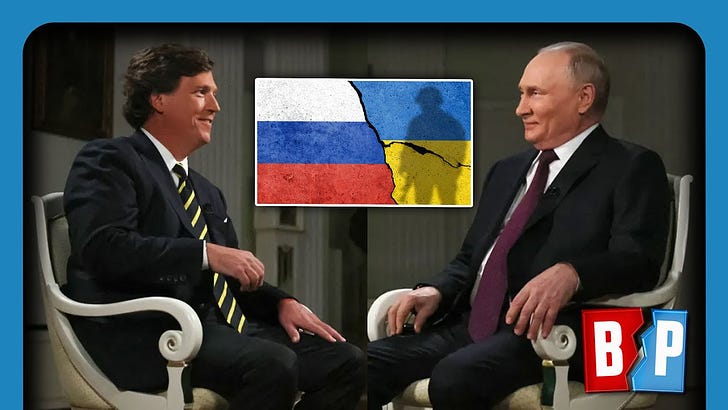Michael von der Schulenburg, a former UN High Commissioner to Sierra Leone and a signer of the early peace appeal a year ago by two well-known but controversial German political figures, Sahra Wagenknecht and Alice Schwarzer, speculates that Ukraine will likely make a peace agreement with Russia this year, with or without US approval.
Schulenburg is also the third candidate on the list of Wagenknecht’s electoral list for the EU elections this year.1 Her new party, Partei Bündnis Sahra Wagenknecht (BSW), is a strange mix of left and right but with a positive attitude toward having good relations with Russia and an embrace of xenophobic anti-immigrant rhetoric. Wagenknecht argues, “We [Germany] need to buy as much oil and gas from Russia as we need to lead our normal lives and to keep the economy going.”2
Schulenburg argues that although Ukrainian President Volodymyr Zelenskyy is planning a major offensive again this year, it is highly unlikely to be a decision blow against Russia. He also estimates that such an offensive would have to begin in three to four months. And there are problems:
In other words, for an operation of this magnitude, there is a lack of the weapons, the soldiers, and the time to prepare it in a way that would be remotely promising. It would be a collective suicide. Massive resistance [among the Ukrainian public] will form against this. Because whether anyone in Ukraine still wants to die in this war today is more than questionable after hundreds of thousands of fallen, maimed and deeply mentally injured people.3
On the other hand, patriotism and nationalism often lead people to make enormous sacrifices.
Zelenskyy also just fired his top commanding general, Valerii Zaluzhnyi, a popular figure who could be a rival to Zelenskyy in the next Presidential election.
Schulenburg sees the following as major factors in the Ukrainian decision-making calculations at this juncture:
By now, It must have become clear to the Ukrainians that a “We support you for as long as it takes” [from NATO] was never meant seriously, that a rump Ukraine would never be will become a member of NATO, and that [European Commission President Ursula] von der Leyen's promise to admit Ukraine into the EU with a fast-track procedure, were just empty words. The Ukrainians must also be clear that Joe Biden is down for the count, even politically crippled, and that for the United States, the Gaza War and the conflict in the Middle East for US is now much more important than the fate of Ukraine. And the Ukrainians also believe it is increasingly likely that the next President of the USA could be named Donald Trump, and that he would be willing to try to make a deal with Russia over their heads. And from Europe’s declarations of solidarity, Ukraine cannot expect much other than big talk. [my emphasis]
From what is publicly known, this appears to be a plausible and realistic assessment of the possibilities. But there can always be surprises. Schulenburg’s view will not make either neocons or liberal interventionists happy. (Running on Sahra Wagenknecht’s electoral list won’t boost his credibility with them, either.)
Despite the rhetorical hype from NATO countries including the US about Democracy vs. Autocracy, helping Ukraine counter the Russian invasion made good practical sense. But it was never a matter of critical national security importance to NATO, and it was never critical to NATO’s credibility as a defense alliance. Ukraine is not a NATO member, and will likely not become one in the foreseeable future. Declining to respond with direct military force to a Russian invasion of a NATO member would be a whole different matter.
For Ukraine, however, it looks likely at the moment that the Ukrainians would probably have been better off if they had reached some kind of long-term ceasefire agreement with Russia in 2022. Because at this juncture, there seems to be no realistic near-term possibility of restoring Ukrainian control over Crimea and most other areas currently occupied by Russia. That makes it a what-if question about the past, now.
Schulenburg sees Russia’s current perspective as follows. If correct, it would mean good prospects for a ceasefire. But even if his optimistic view of the Russian perspective is correct, Ukraine will still be left as a much-reduced rump state, which Russia can be expected to try to make look as much like a failed state as they can.
It can be expected that Putin would respond in an accommodating way to Ukraine's willingness to talk. He will not want to humiliate Ukraine, nor will he demand that the government be replaced (Moscow has never allowed a [Ukrainian] government in exile to be established). Nor will he invade Kyiv, let alone try to conquer the whole of Ukraine.
Its primary goals will be: to prevent Ukraine from joining a Western alliance such as NATO; to guarantee Russia's access to the Black Sea; and, to ensure that Russian influence in Ukraine remains strong. To do this, he will need the cooperation of large parts of the Ukrainian population. This will not be achieved by force. Putin will therefore have to make concessions. What these are remains to be seen. [my emphasis]
Ryan Grim and Emily Jashinsky recently discussed what Vladimir Putin may have been signalling in his controversal interview with Tucker Carlson4:
Jäckels, Pauline (2024): Europapolitik des BSW: »Weniger EU ist mehr«. Neues Deutschland 29.01.2024. <https://www.nd-aktuell.de/artikel/1179572.gruendungsparteitag-europapolitik-des-bsw-weniger-eu-ist-mehr.html> (Accessed: 2024-18-02).
Mayer, Walter (2024): Die unheimlichen Verführerinnen. Profil 7:2024, 27-28. My translation from the German.
Von der Schulenburg, Michael (2024): Der Ukrainekrieg könnte schneller und anders enden, als erwartet. Makroskop 12.02.2024. <https://makroskop.eu/04-2024/der-ukrainekrieg-konnte-schneller-und-anders-enden-als-erwartet/> (Accessed: 2024-18-02). My translation from German.
What Everyone MISSED From Tucker's Putin Interview. Breaking Points YouTube channel 02/18/2024. (Accessed: 19-02-2024).


